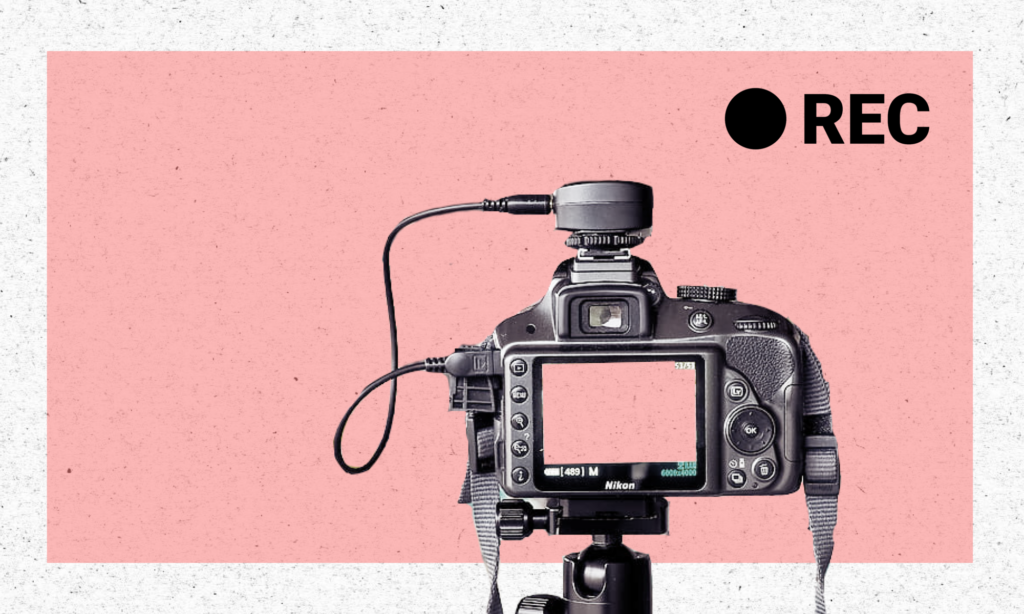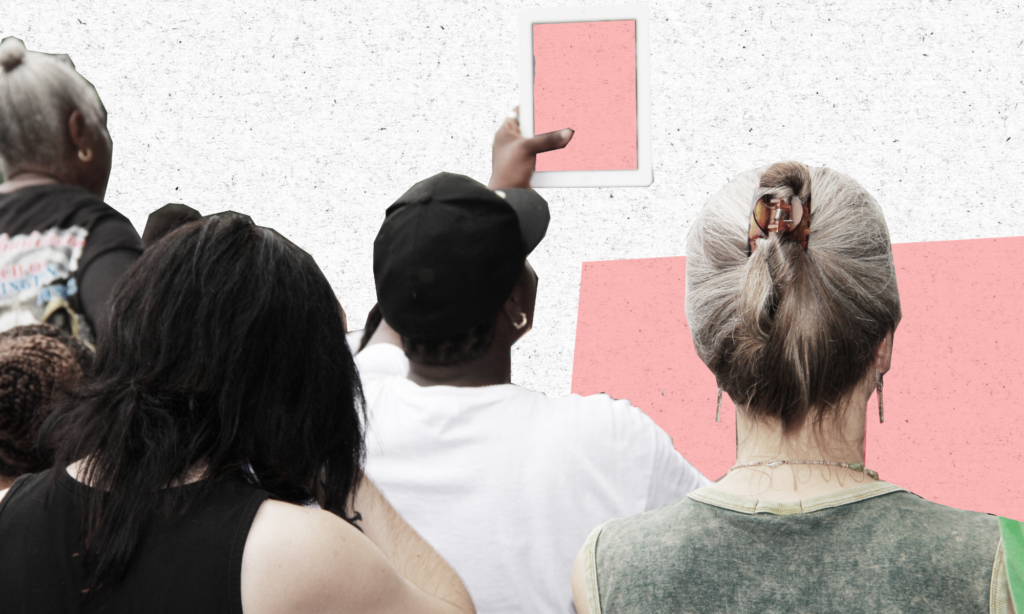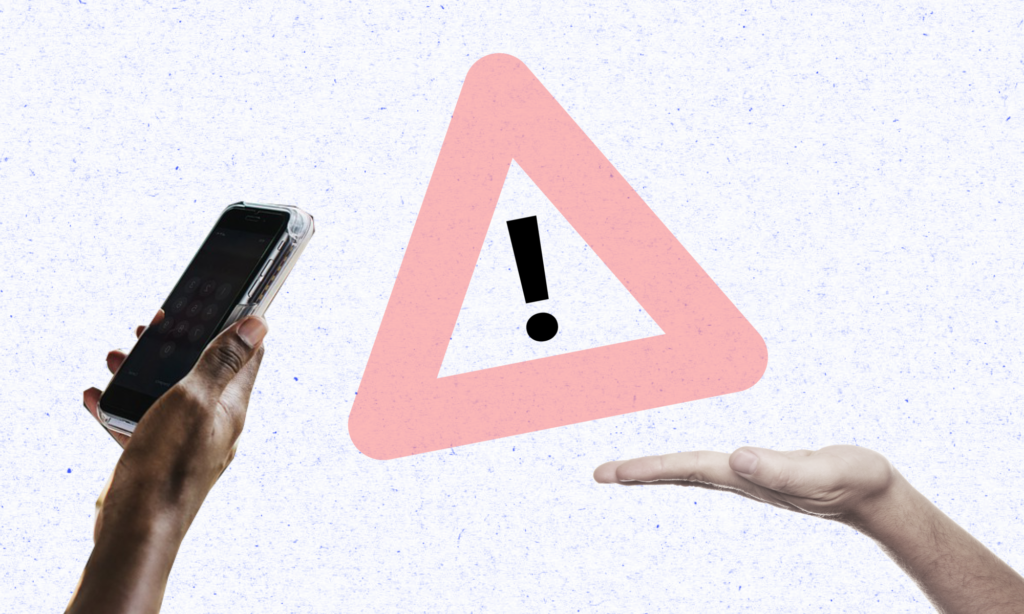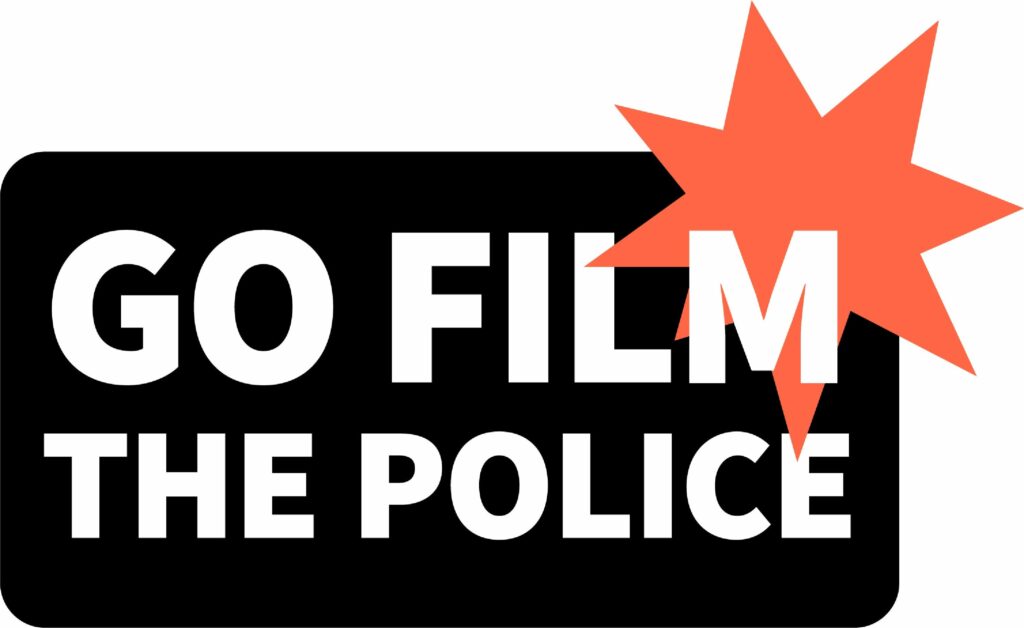A Street Action Guide for Germany
[Last update: February 2023]
In this guide, we will cover the specific topic of filming police violence in its various forms, manifestations and degrees. – please check the “What to do if you witness police violence?” slides published by KOP for tips on how to behave as a witness, which of course also applies when you film.

- What do I do when I witness police violence?
- Am I allowed to film / can police tell me to stop filming?
- What and how should I try to film?
- What should I avoid while filming?
- Can the police tell me to leave?
- Can the police tell me to delete the video?
- Is the police allowed to confiscate my phone/ the camera I filmed with?
- What to do if my device is (about to be) confiscated?
- Tips to prevent the police using the information on the phone.
- Is the police allowed to search me?
- A note on general safety while filming.
- What to do after the incident?
- Storing and sharing video materials securely.
- Is it illegal to publish videos of police?
- Sharing videos online.
- Other resources and useful guides
What do I do when I witness police violence?
It is important to film and document police violence! When the police realize that they are being filmed, they are more likely to stick to the rules. If the legality of their use of force is later (legally) challenged, video recordings are an important piece of evidence. False statements by those involved (including the police officers) are then made significantly more difficult.
Even if other passers-by are already filming, it is a good idea to also film. The more people film an incident from different perspectives, the better it can be investigated later. Also: if multiple people are filming the situation, the police will less likely succeed with preventing the filming even if they try.
Many officers will try to prevent you from filming them though, with (supposedly) legal or possibly also arbitrary / illegal and violent means. Be aware of the risks and try to assess the situation as well as your capacities before deciding how far you are willing to go. (How police reacts can be different from officer to officer and vary between situations. Police forces from different cities might also have varying patterns.)
General advice
In general: You have the right to remain silent, also when police asks (provocative) questions. Don’t make any statements that can be used against you – if in doubt, don’t answer / stay silent! You can always defend yourself later, with the advice from legal people. There is no advantage in trying to defend yourself on the spot. (Info-brochure about Aussageverweigerung in German)
If you are participating in a protest, please make sure to keep the number of the legal support team with you (preferably not on your phone in case it is confiscated or lost) and inform yourself about your rights in protest situations. Here are some resources:
- Rote Hilfe’s material (differently up to date in different languages: German, English, French, Turkish, Arabic, Italian, Russian, Spanish, Greek, Polish).
- Black Lives Matter Berlin’s guide for demonstrations and what to do if you witness racial profiling or police brutality
Be aware that in Germany, “insulting” a police officer is a criminal offense (fun fact: this is not a law specific to police officers, it is considered a criminal offense to insult anyone). If in doubt, inform yourself about what is considered okay and what is not beforehand. For example: accusing an officer of “being racist” has been considered an insult, pointing out that a specific behaviour or statement of theirs is racist can be safer. It has been reported that some were charged with “disrespecting authority” for merely using the more informal “du” in German for “you” (instead of the formal “Sie”).

Am I allowed to film / can police tell me to stop filming?
- Generally, there is nothing prohibiting you from filming someone (video only, without audio) in public space. There is a law that prohibits audio-taping “privately spoken words” though, which has been used by police to sue people who have filmed them. There is ongoing discussion in legal circles about whether the statements of police officers can be considered “private” or not. Lawyers and even some people from the police institution argue that statements of police officers in duty cannot be considered private as they are there in a non-private role, representing a public body. Different courts have decided differently about this so far.
- What is prohibited is “disturbing” or “hindering” police work. This is of course a vague term and police can (mis)interpret it to their benefit. To be on the safer side, keep a distance of about 6 meters, which usually cannot be interpreted as disturbing the police’s actions.
- You are not supposed to film close-ups of individual officers
- Officers have used the law which prohibits the recording of “privately spoken words” (German Criminal Code, Section 201: Violation of the privacy of the spoken word / § 201 Verletzung der Vertraulichkeit des Wortes) to remove people from the proximity of what is happening, confiscate devices, and take legal steps against people who filmed them. But again, by keeping a distance, it minimizes the chances of them claiming that you are taping anything that is not “public”.
- Publishing the video can be subject to legal prosecution. There are, however, situations in which you can still publish (check below). The police may ask to see your ID/personal details because they suspect you “might publish it later”. This is usually just an intimidation tactic, they might offer to not want to see your ID if you show them the video instead (in which case they might ask you to delete it or confiscate your device). Usually there are no consequences to them writing down your ID. (If you are up for being a bit confrontational, you can reply to the police – to make it clear that you don’t intend to publish the video online – that you are filming their work because you suspect unlawful conduct and that you want to report it, or you can simply say that you are filming for the „Staatsanwaltschaft“.)
- You can always tell them that you will call your lawyer, in some cases it may create some hesitation on the side of the police to do something, especially if they are not completely sure about the legality of their actions themselves (e.g. inexperienced officers). It is always good to know your rights and be able to state them in a confident way. Officers may try to intimidate or confuse you by stating false facts, e.g. claiming something is a criminal offense and punishable by law when it isn’t.
What and how should I try to film?
- Recordings are especially valuable if they show how the situation unfolded and what happened before the physical violence. Try to start recording as soon as you feel something might be about to go down. Often, videos capturing police violence are dismissed in court because officers claim that something happened before the video starts (before their violent actions) which would “justify” the use of violence. They can for example claim that they were being attacked or that the person they are hurting tried to free someone else.
- While filming police violence, it is important to focus on what is happening, but when possible, it is good to show a wider angle with identifying points keeping the police as point of focus (street landmarks, street name, amount of crowd around). This can be handy later when establishing/verifying/matching the time, place and context of the video.
- If possible, try to get the officers’ badge numbers or any identifying details on the video.
- If needed and if the sound of what is happening is not important, you can narrate to the camera what you are viewing as you film. This can be a good way to document as many details as possible. (Also, some people find it self-calming in such tense moments.)
- Tip: if there are objects (e.g. a tear gas canister, or a projectile that was used and left by police at the scene) that you want to include on the videotape or in a photo because they could be important in later processes (e.g. legal or investigative); you can place a standard object – like a lighter, a pen, or a phone – next to the object in question (the projectile), before filming it. This will help show the size and dimension of the object in comparison to the standard object placed next to it.
What should I avoid while filming?
- While filming, please keep the safety and privacy of others in mind. Unless necessary, avoid filming others in ways that can be used to easily identify them, especially if they are doing something which can incriminate them
- Consider what you are filming: who is in the shot? Is there anything that can incriminate any civilians who appear in the shot? Carefully weigh the pros and cons (risks for others) of the footage you are filming. If you film something that depicts or potentially incriminates others, pay extra attention to storing and sharing the footage safely (see below).
Can the police tell me to leave?
- If you are at a public space, then you are allowed to be there as long as you don‘t “disrupt” police work. As long as you keep a distance of about 6m and film from there (using your camera‘s zoom if needed), police shouldn’t have a reason to ask you to leave on the grounds of “disturbing” their work.
- If the police is just asking you to leave, you can always object. If they issue a „Platzverweis“, however, you are legally required to leave. If this happens, make them state the reason and detailed information to you (for how long and which area the “Platzverweis” is for – it has to be specific enough for you to understand exactly where you are and aren’t allowed to be and when). Ask for a written justification for the „Platzverweis“ so you can use it to legally object/contest it later. (Also, causing more paper work for officers can be a long-term collective strategy to keep officers from doing certain things, if they are too lazy to do the paperwork required for it.) They may not have the time to write it on the spot, but they have to mail it to you later in that case. Ask for the badge number of the officer, which you can use to follow up in case they don’t send it to you. They are required to give you their identifying number by law; if they don’t, you can demand to speak to their boss [Einsatzleiter]. (If you need help with following-up after the incident or filing a report, you can reach out to organizations like KOP and ReachOut to help you with that.)
- Again, you can try to call a lawyer or threaten to do so. In some cases it might help, but other times it won’t make any difference.
- Note: The steps outlined above may sound like nitpicking, but it can be important to insist on the rights we have. Demanding reasons and documentation for these kinds of police measures can help prevent arbitrary, unjustified measures, and following-up police misconduct legally whenever possible can help discourage future violence and unjustified (ab)use of power.
Can the police tell me to delete the video?
- As long as you didn’t film close-ups of faces and/or “non-public conversations”, they have no legal basis to tell you to delete the video.
- If officers threaten or attempt to delete the footage, you can tell them you are calling a lawyer. Sometimes the claim of getting a lawyer involved can deter officers from legally questionable or illegal arbitrary actions. At bigger demonstrations, there may be an EA/ legal team that you can call. If you get in conflict situations with the police regularly, it would make sense to get the contact of a lawyer to call in similar situations. Rote Hilfe, KOP,… may be able to help with finding a friendly (and possible pro bono) lawyer.

Is the police allowed to confiscate my phone/ the camera I filmed with?
- The police can confiscate your device if they suspect evidence for a crime on it (e.g. if your video includes how someone “insulted” an officer). If they are (attempting to) confiscate it, make sure to state clearly that you do not approve of this. With phones, there are higher stakes for the police to confiscate them because they are considered an everyday-necessity for life. Therefore, if it is only a minor crime that officers claim to believe is recorded on it, you can contest the measure legally later, since it is a significant interference with your rights and is disproportionate.
What to do if my device is (about to be) confiscated:
- Turn it off!
- Do not give your passcode! You are not legally required to do so, no matter what the police say! (Note: Because of situations like this, it is recommended to not have face on fingerprint lock on your phone, as the police can use those to unlock your phone without your consent.)
- Demand a „Beschlagnahmungsprotokoll“ (confiscation notice)
- Do not sign the protocol!
- At the earliest chance, use another device to revoke access to any apps that are logged in on your phone. Or you can simply change passwords, which will automatically log you out from social media accounts for example. If you can and want to remotely delete data from your phone, please speak to a lawyer first, as in some cases, deleting data from a confiscated device can be prosecuted as obstruction to police work.
Tips that can help prevent the police using any of the information on the phone:
- Encrypt it! This is a good basic (and easy!) thing to do, regardless of whether you expect to have confrontations with police or not.
- Protect it with a passcode! A six-digit code is already a lot more difficult to crack than a 4-digit one. Avoid using the biometric unlock feature, as your phone can be unlocked by the police or other adversaries holding the phone in front of your face or against your finger.
- Tip: Encrypting and passwords with Totem (guide in English, Russian, French, Arabic)
Is the police allowed to search me?
- The police are allowed to register your identity – i.e. ask for your ID.
- They are in general not allowed to search you! Except if you agree to it. Careful! Remaining silent is counted as approval. If an officer announces they will search you, you have to answer that you are not okay with it. When you e.g. say „No, don’t search me. I don’t consent“, they are not allowed to search you, except in the following cases:
- You are at one of the so-called “kriminalitätsbelastete Orte” (or “gefährliche Orte”), which are specific areas where police have more powers. This includes their right to search you without a specific reason. Here is a list of the current KbO’s.
- You are a suspect of crime (§102 StPO Strafprozessordnung). In this case you have to be suspected of having committed a crime (e.g. owning illegal drugs). But in general, you are assumed to be innocent, unless there are specific indications for you having committed that crime (having red eyes, for instance, don‘t count as a concrete indication.)
- Or as a non-suspect (§103 StPO): as a non-suspected person, the police is only allowed to search you if they have indications that this would contribute to finding a suspect or to securing evidence. This would for example be the case if the police saw a suspect handing over an object they used for a crime to you.
A note on general safety while filming
- While filming please keep your own safety in mind, not only from the police, but also from your surroundings. While filming and keeping your camera focused on the what is happening, make sure to look around you and watch your steps if you are moving. Especially if you are close to a street, if there are things being thrown, or if people come running and shoving etc. Stay aware of your surroundings!
- During demonstrations and other protests, keep track of possible exit strategies.
After the incident
- If you believe the police used unreasonable violence or acted against a law, you can file „Dienstaufsichtsbeschwerden“ and sometimes „Strafanzeige“ or „Strafantrag“. (Important: always file both, as some things are only processed if there is a „Strafantrag“. This has to happen within 3 months after the incident). For this, make sure you have written down what you remember straight after the incident, as our brains forget details quickly.
- time of the event
- actions of persons involved
- information of other witnesses
- numbers of the police officers involved
- registration numbers of police vehicles
- If you have any questions or need support with this, contact initiatives like KOP Berlin for (legal) counseling. They also create statistics about incidents that are reported to them and then used for lobbying, so even if you do not want to file a complaint or wish to remain anonymous, it is good if the case gets documented (in that case without any names).
Storing and sharing video materials securely
- Send material to a trusted contact who is not on site as quickly as possible especially if you are still at the scene, so the footage is not lost in case your device gets confiscated. Please use secure channels like Signal.
- Storing materials safely after the incident is important, especially if you don’t want authorities to have access to what you filmed (e.g., if it shows other people – see above). It is important to keep in mind both physical (e.g. house searches/confiscations) and digital (e.g. authorities asking your e-mail or cloud provider to send them your files or information about you) threats in mind. Ideally, store the video material on an encrypted container on your computer (which you can set up with Cryptomator or Veracrypt for example) or on a encrypted cloud (e.g. a Nextcloud hosted by a trusted provider). Encrypted phones are generally easier to crack than encrypted containers on a computer. Both the encrypted container and the encrypted cloud are only safe as long as there is no “open door”: make sure the browser doesn’t automatically log into the cloud and that the password is safe and remains unknown. Encrypted containers on computers are only encrypted as long as you don’t have them open and running.
- Tip: Here are some guides that can help with setting up strong passwords:
- Delete the videos as soon as possible from your camera or phone, so they don’t get compromised if someone gets hold of your phone, e.g. because you lose it or it gets confiscated at a later moment.
- When sharing information or material, make sure to do so in secure ways, too. Check these services:
- Signal
- Onionshare
- Nextcloud
- Encrypted e-mail
- Encrypting files (e.g. with Cryptomator or Veracrypt) and then sharing in any “normal” channel (example: e-mail, Google drive, ..) while sharing the passcode for decrypting in a safe channel.
Is it illegal to publish videos of police?
- Generally it is illegal to publish videos or images of individuals without their consent. Police can use this to prosecute publishing of their images and videos.
- There are exceptions to this:
- When the “Public interest“ of the material outweighs the personal rights
- when the video is about a general public scene rather than about individuals (some rules of thumb say, if there are at least 7-9 people in the images)
- Check with a lawyer or counselor before publishing, both for your own and others’ safety and best interests. For example, material is usually more helpful in legal proceedings if it has not been seen and published before. Again, if you consider publishing, it is very important to check that the material only shows things that incriminate the police and does not identify others (especially if you cannot get their consent).
Publishing videos online
If you consider publishing, please consider the points that apply to each context:
- What are the goals behind publishing a video?
- Is there anything in the video or photo that could jeopardize the targets of police violence? Or others present?
- You can use face blurring apps to try and protect the identities of individuals. Note that not only faces can identify people (other unique identifiers, like tattoos or birthmarks can, too – and sometimes even clothing or anything that allows to match a person to another image or film from the situation).
- Please consider how the images can affect people who see it. If there needs to be, it is important to add a trigger warning.
- All video and photo material has data in them known as metadata. It is data that could identify the source, the time, the location, etc. of where the material was shot and/or edited. This can be helpful for verification and you may keep a copy of the material with its metadata, but usually there are few advantages of publishing the metadata as it can also be used against the author and others. Major social media platforms (Facebook, Twitter, Instagram) strip the metadata automatically, but in other cases and to be on the safe side you should remove the metadata with a suitable tool. On social media platforms make sure that your posts are not automatically geo-tagged (e.g. by turning off location access for your apps (many languages)).
- Don’t tag people without their informed consent. It can identify them and/or have other consequences (legal, reactions from family / employers / social networks, becoming a target of hate speech, ..).
- When publishing politically controversial content, you may receive hateful and mentally damaging reactions. Here are some resources on how to deal with online abuse (these guides mostly speak to journalists, but are also useful for activists):
- https://dartcenter.org/resources/online-abuse-self-defence-guide
- https://onlineharassmentfieldmanual.pen.org/advice-from-a-psychologist/
- https://www.iwmf.org/mental-health-guide/
- http://www.troll-busters.com/
- Totem courses “Psychological preparation”, “Psychological First Aid”, “Taking care of your mental health”
This guide is a project from by FACQ Berlin as part of the alliance Go Film The Police. Huge thanks to lawyer Maren Burkhardt for the legal review, and for our team of translators.
References
- https://taz.de/Reagieren-bei-Polizeigewalt/!5687969
- https://de.m.wikibooks.org/wiki/Rechte_und_Pflichten_im_Umgang_mit_der_Polizei#Inhalt
Other resources and useful guides
- Video as Evidence: Basic Practices for Capturing, Storing and Sharing (English | Arabic | French | Spanish | Russian | Ukrainian)
- Activist Guide to Archiving Videos (English | Español | العربية | Português)
- Video Production Basics: Guides in multiple languages
- Concealing the identity in Interviews: Resources in multiple languages (Arabic | French | Portuguese | Spanish)
- Filming Protests in Teams: Resources in multiple languages (Arabic | French | Portuguese | Spanish)
- Filming Protests and Police Conduct: Resources in multiple languages (Arabic | Chinese | French | Portuguese | Russian | Spanish | Turkish)
- Understand and Learn more about metadata: https://exposingtheinvisible.org/guides/decoding-data/#metadata
- Filming with a mobile phone (English | Arabic | French | Portuguese | Thai | Spanish)
- How to film protests – production techniques (English | Arabic)
- Should I collect and archive these videos?
Recommended Tools
- Signal Blur Tools (update your Signal app on both Android and iOS for the added feature) https://signal.org/blog/blur-tools/
- CameraV: Secure Verifiable Photo & Video Camera (Android Only): https://guardianproject.info/archive/camerav/
- Tella Documentation App (Android): https://tella-app.org/
